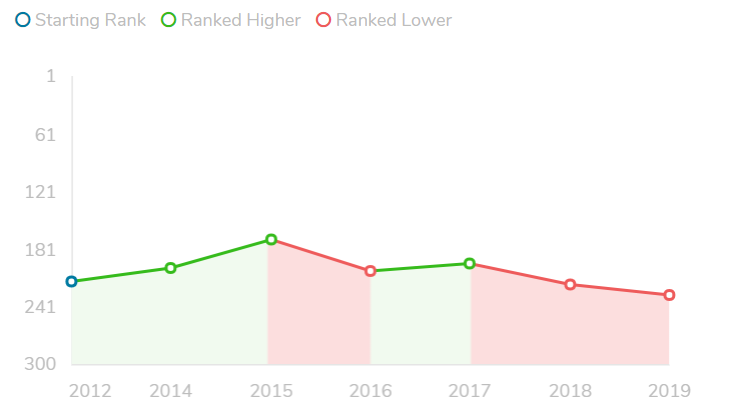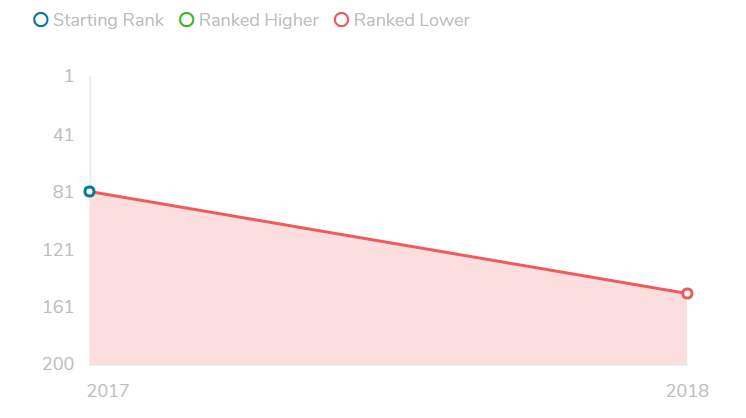
Free Falling: U of C drops to lowest QS ranking in the institution’s history
By Matty Hume, June 11 2018 —
The University of Calgary has dropped from 217th to 229th on the QS World University Rankings.
The U of C isn’t the only Alberta institution to see a significant drop. The University of Alberta fell out of the top 100, dropping from 90th to 109th this year.
The QS rankings are one of the most respected university rankings in the world, published annually by the British company Quacquarelli Symonds. Rankings are decided through weighing various metrics, including academic reputation, faculty/student ratio and citations per faculty.
Out of scores of 100, the U of C scored 33.4 on academic reputation, 39.6 on employer reputation, 35.6 on faculty/student ratio, 85.7 on international faculty member ratio, 61.6 on international student ratio and 42.2 on citations per faculty.

Courtesy Quacquarelli Symonds
In a statement to the Gauntlet, the U of C said the drop in QS ranking is comparable to other Canadian institutions.
“The University of Calgary has reviewed the results of the latest QS Rankings. The University of Calgary is ranked 229 in the world (9th in Canada) among research universities,” the statement read. “Based on our preliminary review of the QS scores our university has suffered a drop in rankings similar to many other Canadian universities.”
The U of C also highlighted that it ranks significantly higher when compared to institutions of a similar age and location.
“This particular ranking includes 1000 institutions of any age. Times Higher Education released the results of its Young University Rankings 2018: Golden Age Universities (between 50–80 years old) the same day as the QS rankings. The University of Calgary ranked second in Canada and sixth in North America,” the statement continued. “This ranking provides a comparative look between our peer institutions, universities established between 1945 and 1966.”
Since 2017, McGill University’s QS ranking has dropped from 30th to 33rd, while the University of Toronto has moved up in the rankings from 32nd to 28th.
In addition to research based rankings, QS also ranks institutions by graduate employability. Over the past year, the U of C’s employability ranking fell from “#81–90” to “#151–160.”

Courtesy Quacquarelli Symonds
Last year, electrical and computer engineering professor Martin Mintchev blamed U of C president Elizabeth Cannon for the drop in an interview with the Gauntlet.
“Did you hear that we were in the top 150 in the world before Cannon took over?” Mintchev said. “There is no movement upward in any international rankings. There has only been a decay over the years.”
Mintchev cited the since-finalized legal dispute with the Students’ Union over the ownership of MacHall, the Canadian Association of University Teachers (CAUT) investigation into possible conflict of interest involving U of C’s relationship with the energy company Enbridge and the general institutional shift from “a community of scholars” to “a community of entrepreneurs” as reasons for the fall under Cannon.
“The current administration should resign,” Mintchev said. “There should also be an investigative committee, either independent or set up by CAUT, that will investigate all aspects of this mismanagement in terms of academic freedom, academic integrity and misleading the public.”
Elizabeth Cannon’s term as U of C president is set to end on Dec. 31.
